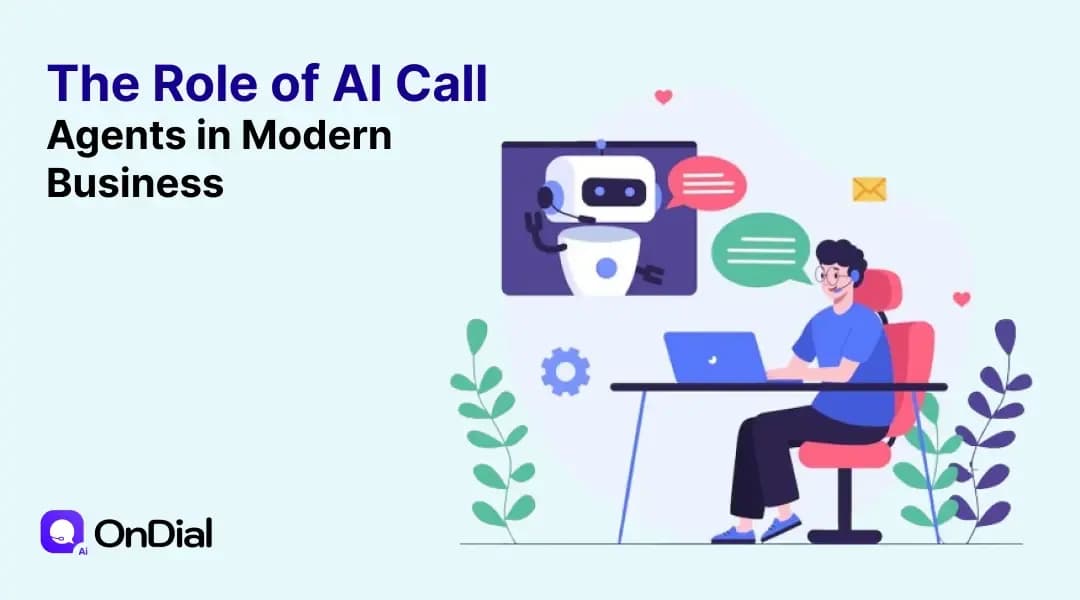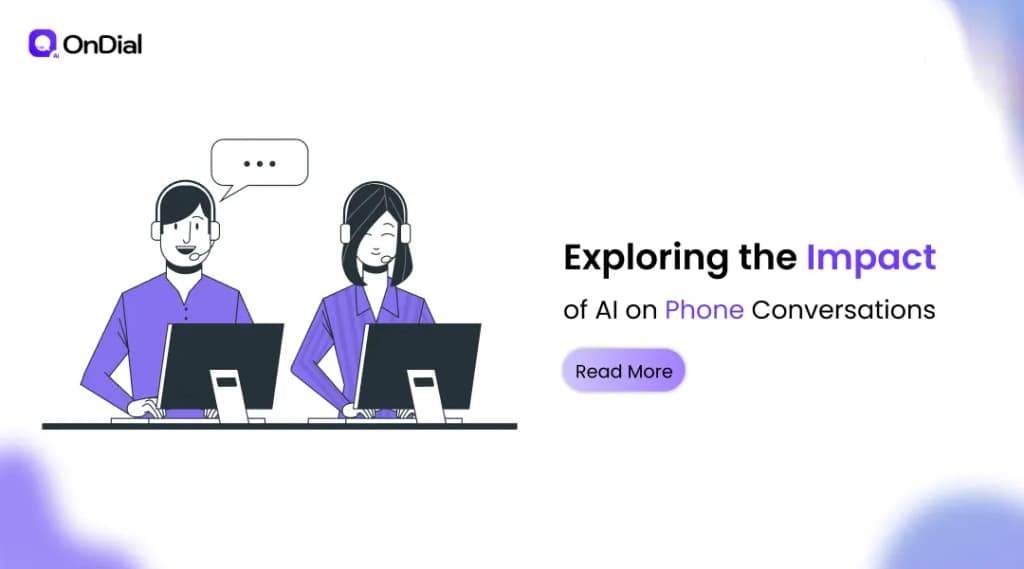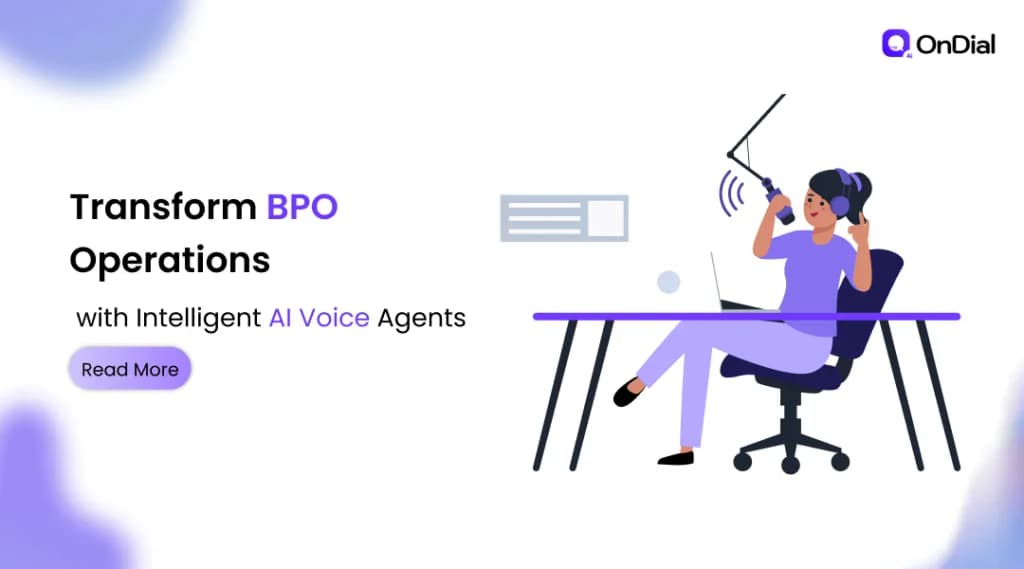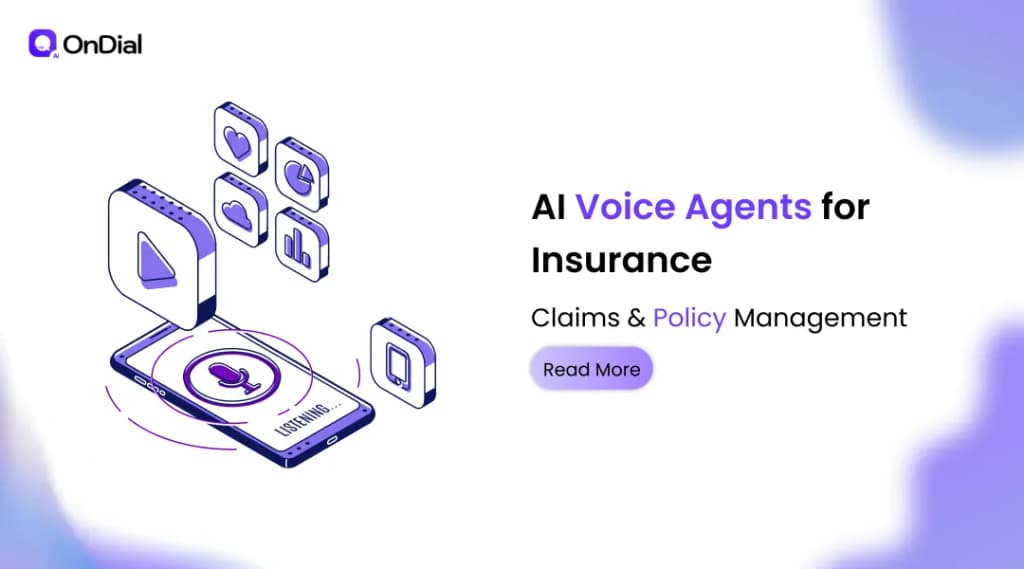Let’s cut straight to the point: customer service is broken. Long wait times, inconsistent responses, and frustrated customers are the norm. I’ve watched businesses throw money at call centers only to see the same problems resurface.
Enter AI call agents. These aren’t your generic IVR systems, they’re intelligent, adaptive, and surprisingly human. Imagine having a team that never sleeps, never gets grumpy, and can handle thousands of customer calls at once. Too good to be true? That’s exactly what I thought. until I saw it in action.
Today, I’ll walk you through how AI call agents work, why they’re transforming modern business, and how companies like OnDial are turning skepticism into tangible results.
How AI Call Agents Work
Natural Language Processing (NLP) and Speech Recognition
Here’s the magic behind the scenes: NLP allows AI agents to understand human language. Not just keywords, but intent, tone, even context.
Think about it. You call a company, frustrated, explaining a complex issue. A traditional system hears “billing problem” and dumps you into a script. An AI call agent? It comprehends the nuance, asks clarifying questions, and routes you effectively.
Speech recognition ensures it’s not just typing your words into a screen. It hears you—accents, pauses, even emotional inflections. Yes, the machine can detect irritation. Creepy? Maybe. Useful? Absolutely.
Machine Learning for Smarter Interactions
AI call agents get smarter over time. Every call is a learning opportunity. Patterns emerge. Responses improve.
For instance, OnDial’s AI systems analyze thousands of Customer Calls to understand frequent pain points. The next time a similar issue arises, the AI handles it faster, better, and more accurately than a human could after a single day of training.
Integration with CRM and Other Business Tools
AI agents don’t exist in a vacuum. They plug directly into CRMs, ticketing systems, and databases. This means your AI Voice Assistants can pull up customer history in seconds, offer personalized recommendations, and even escalate issues when necessary.
It’s not just automation, it’s context-aware, customer-centric intelligence.
Benefits of AI Call Agents in Modern Business
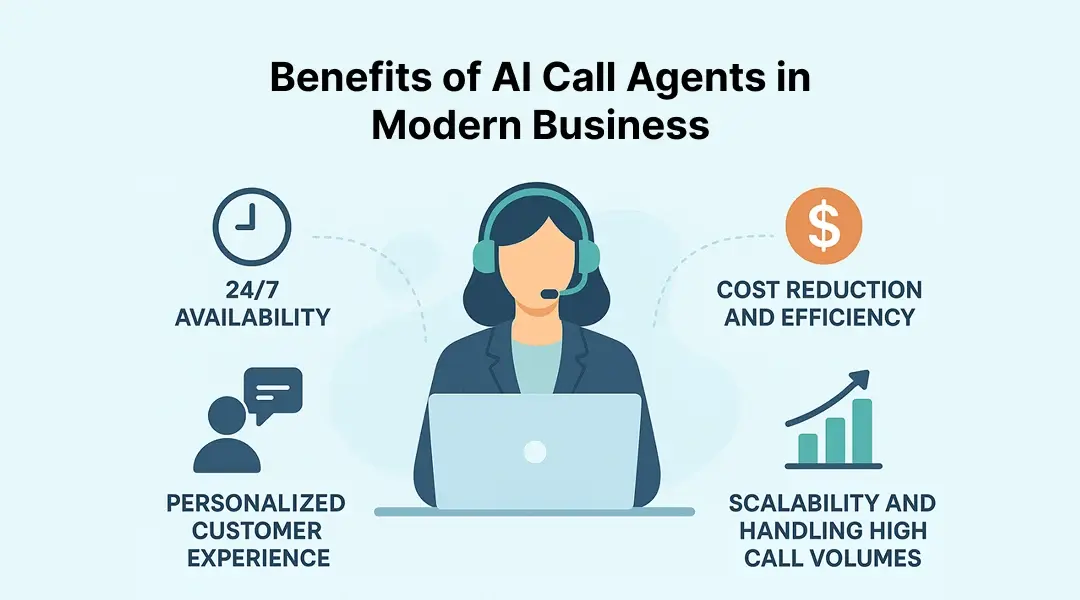
24/7 Availability
Humans need sleep. AI doesn’t. Imagine your business having a tireless team that answers every call at 3 a.m., in multiple languages, without ever missing a beat.
Cost Reduction and Efficiency
Call centers are expensive. Salaries, training, turnover, it adds up fast. AI agents reduce operational costs while maintaining service quality. Not to mention, you can scale without multiplying staff.
Personalized Customer Experience
I know what you’re thinking: “AI can’t be personal.” Wrong. With proper data integration, AI agents remember preferences, past interactions, and even anticipate needs. It’s like talking to a support agent who actually remembers your name and your problem.
Scalability and Handling High Call Volumes
Black Friday, product launches, unexpected outages, call spikes happen. Humans can’t always scale instantly. AI agents? They scale on demand. Thousands of AI Phone Calls handled simultaneously, no burnout.
Use Cases of AI Call Agents
E-commerce Customer Support
Order issues, shipping updates, refunds—AI agents handle it all. Customers get instant responses, and businesses reduce abandoned carts and negative reviews.
Banking and Financial Services
Verifying transactions, fraud alerts, account inquiries, sensitive work, yes. AI agents can manage routine tasks while human agents focus on high-risk, high-value calls.
Healthcare Assistance
Appointment scheduling, patient reminders, teleconsultation support. AI ensures patients get timely attention without overloading human staff.
IT and Technical Support
Troubleshooting, password resets, ticket routing. AI reduces wait times and helps IT teams prioritize real emergencies.
Challenges and Considerations
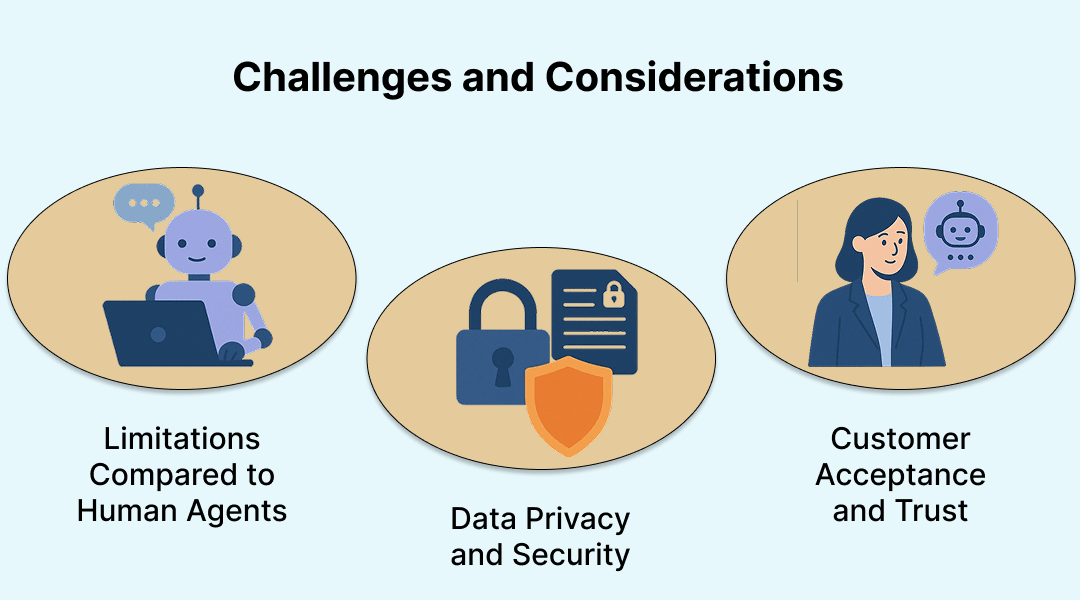
Limitations Compared to Human Agents
AI isn’t a perfect replacement. Complex empathy, ethical decisions, or nuanced negotiations still require humans. The trick is collaboration, not replacement.
Data Privacy and Security
Sensitive customer data is at stake. Secure encryption, compliance with regulations, and transparent AI practices are non-negotiable.
Customer Acceptance and Trust
Not every customer is comfortable talking to a machine. Clear communication, opt-out options, and visible AI-human handoffs build trust.
Future of AI in Customer Support
AI-Human Hybrid Models
The sweet spot? AI handling routine calls, humans taking on complex interactions. Efficiency + empathy = happier customers.
Predictive Analytics and Proactive Support
AI can predict issues before they happen. Server downtime, account anomalies, even shipping delays—customers can be notified proactively.
Emerging Trends and Innovations
Voice sentiment analysis, multilingual capabilities, emotion-aware interactions, and generative AI responses are just the start. The next decade will blur lines between human and AI support.
Conclusion
Here’s my blunt takeaway: AI call agents aren’t hype. They’re practical, measurable, and transformative. Businesses that ignore them risk falling behind in efficiency, cost-effectiveness, and customer satisfaction.
But it’s not about replacing humans. It’s about smart augmentation. The companies that win? Those that combine the relentless precision of AI with the irreplaceable empathy of humans.
